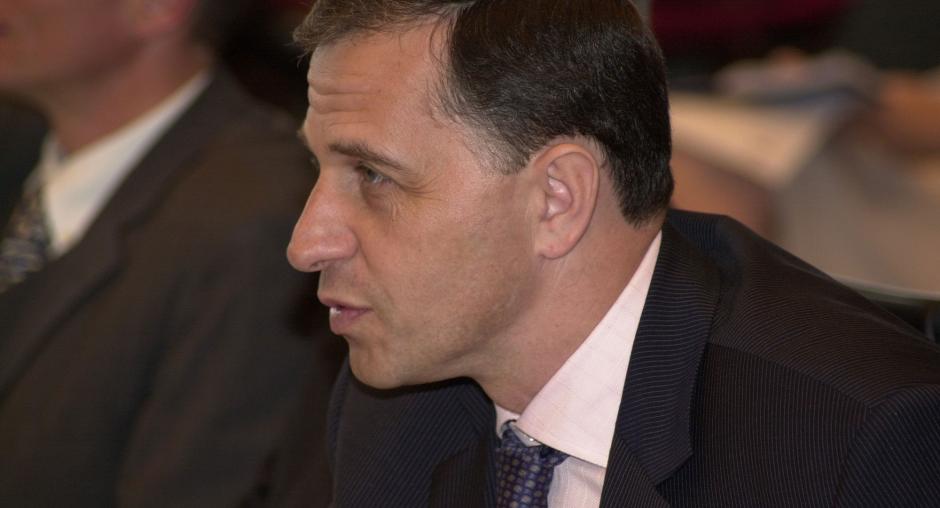Newsroom
OSCE Chairman-in-Office shares concerns on Montenegro's draft new referendum law
BUCHAREST 14 November 2001

(Michal Olejarnik/OSCE)OSCE Chairman-in-Office, Romanian Foreign Minister Mircea
Geoana, addresses the OSCE Permanent Council, 21 June 2001. (Michal Olejarnik/OSCE) Photo details
BUCHAREST, 14 November 2001 - The OSCE Chairman-in-Office, Romanian Foreign Minister Mircea Geoana, fully shares the concerns raised by the OSCE Office for Democratic Institutions and Human Rights (ODIHR) in a detailed analysis of Montenegro's draft new referendum law.
"In view of the stability of the country and the region as a whole, and in order to solve the current political issues in Montenegro and to avoid that the outcome of the referendum should be politically contestable, the law should ensure that important constitutional changes cannot be made without the approval of a significant majority", the Chairman-in-Office said.
The ODIHR report criticizes that the draft law does not contain any minimum turnout or weighted majority requirements, thus allowing the approval of referendum questions by simple majority.
While the OSCE has not sought to prescribe a specific formula for a necessary qualified majority, ODIHR had recommended earlier this year that appropriate majority requirements in line with international best practice be introduced. The draft, however, moves in the opposite direction by further reducing the majority required to approve referendum questions.
"We call on the parties in Montenegro to find consensus on the referendum law as this issue is of the greatest importance for confidence in a possible referendum process and the acceptance of its results both nationally and by the wider international community", said Mr. Geoana.
The Chairman-in-Office confirmed the OSCE's readiness to continue to assist the Montenegrin authorities in bringing its legislation in line with international standards and best practices.
"In view of the stability of the country and the region as a whole, and in order to solve the current political issues in Montenegro and to avoid that the outcome of the referendum should be politically contestable, the law should ensure that important constitutional changes cannot be made without the approval of a significant majority", the Chairman-in-Office said.
The ODIHR report criticizes that the draft law does not contain any minimum turnout or weighted majority requirements, thus allowing the approval of referendum questions by simple majority.
While the OSCE has not sought to prescribe a specific formula for a necessary qualified majority, ODIHR had recommended earlier this year that appropriate majority requirements in line with international best practice be introduced. The draft, however, moves in the opposite direction by further reducing the majority required to approve referendum questions.
"We call on the parties in Montenegro to find consensus on the referendum law as this issue is of the greatest importance for confidence in a possible referendum process and the acceptance of its results both nationally and by the wider international community", said Mr. Geoana.
The Chairman-in-Office confirmed the OSCE's readiness to continue to assist the Montenegrin authorities in bringing its legislation in line with international standards and best practices.
